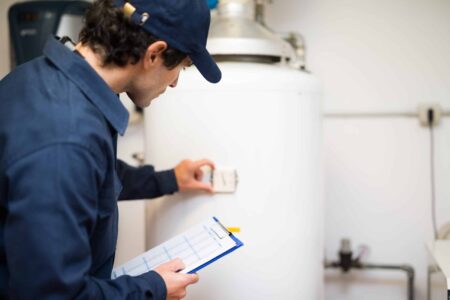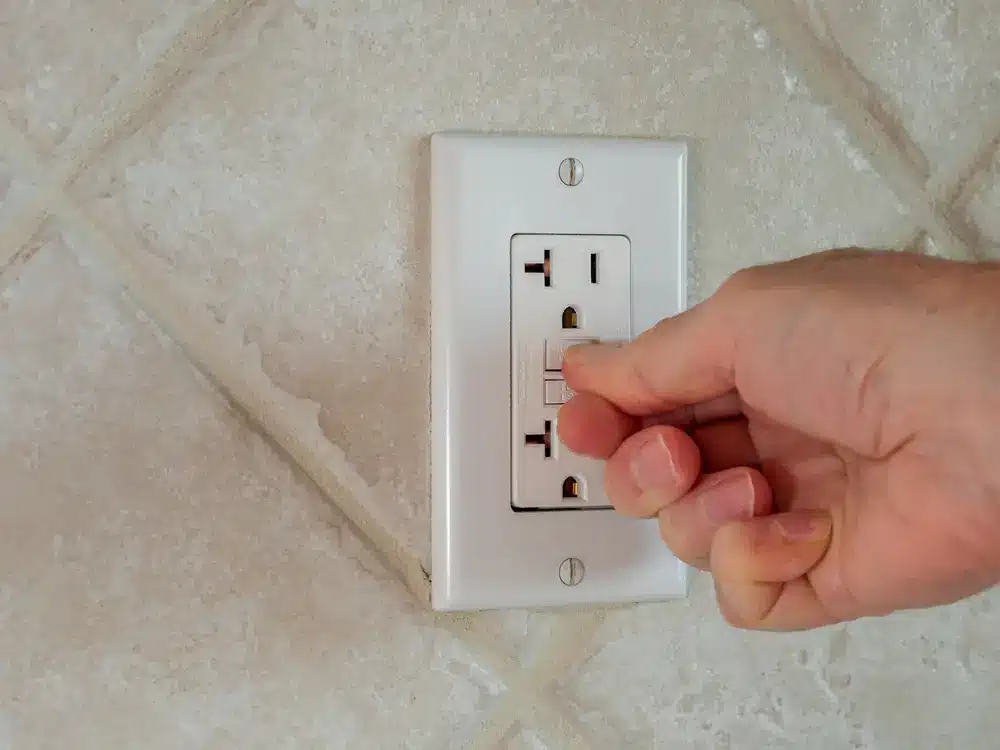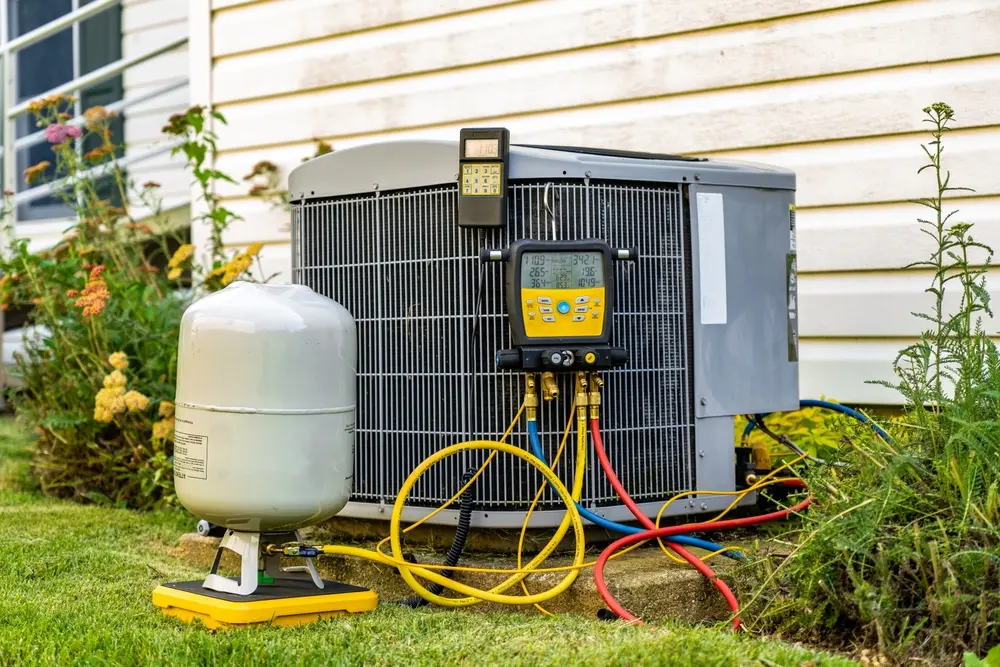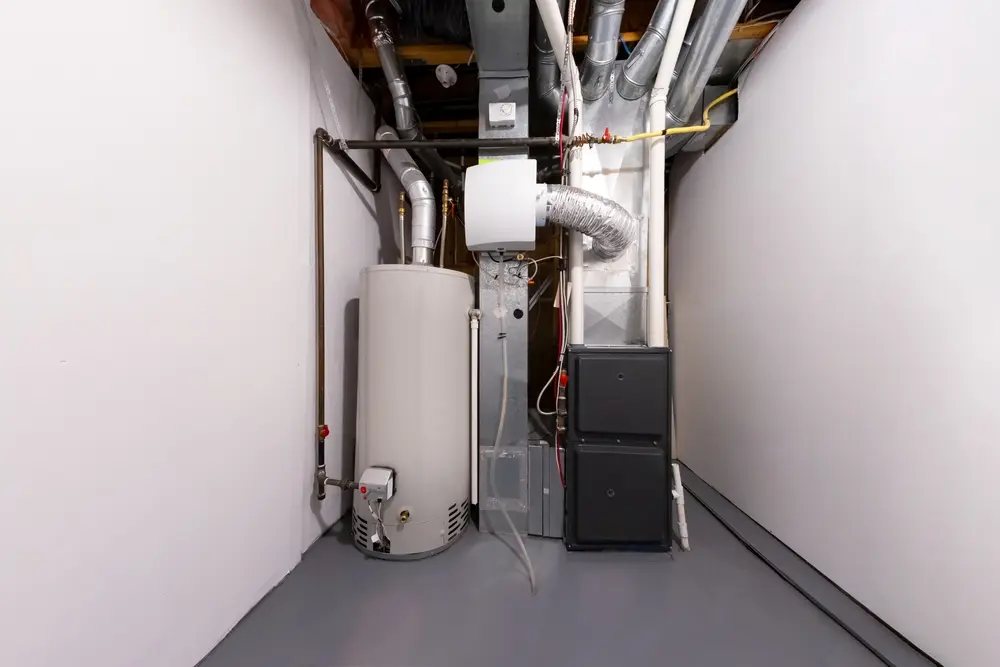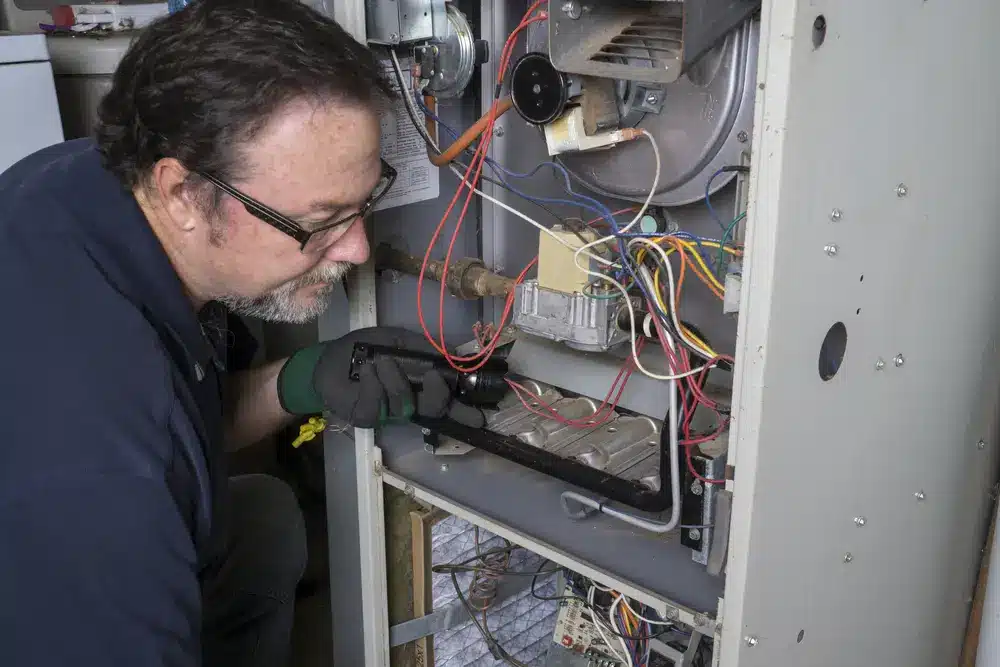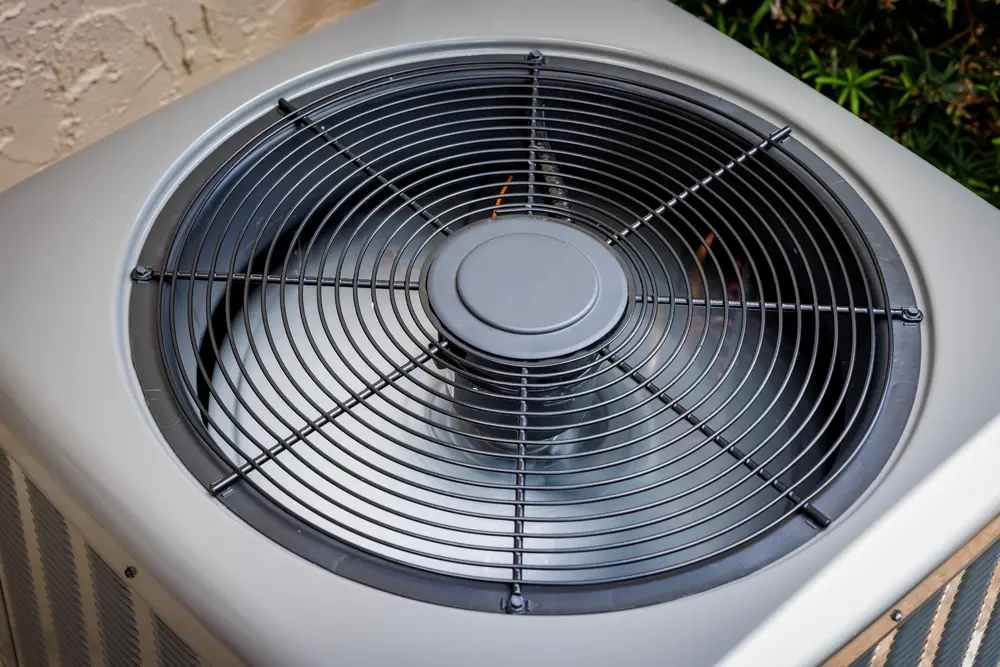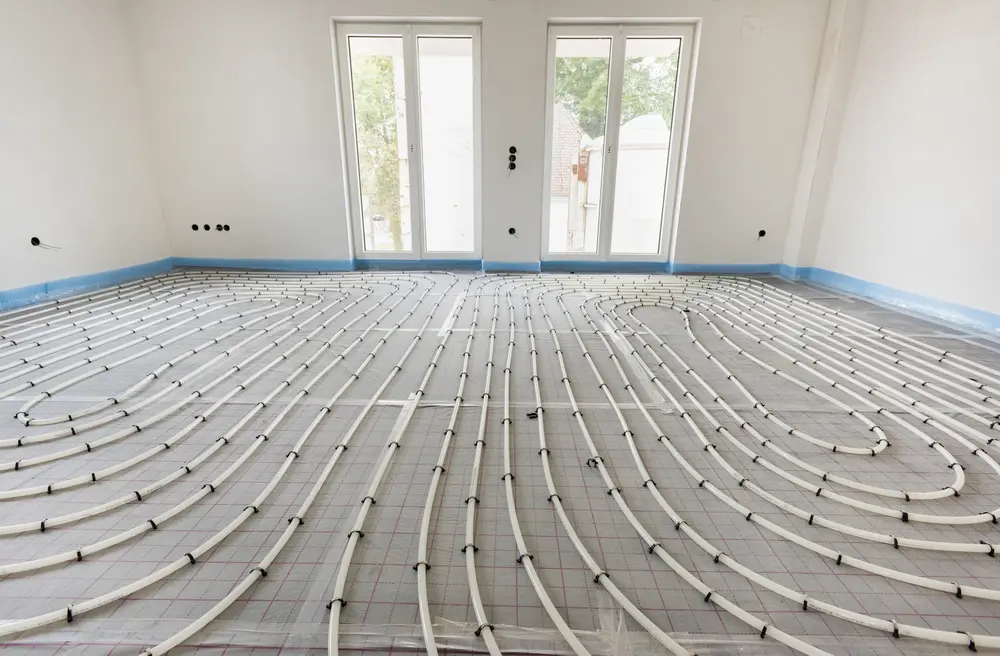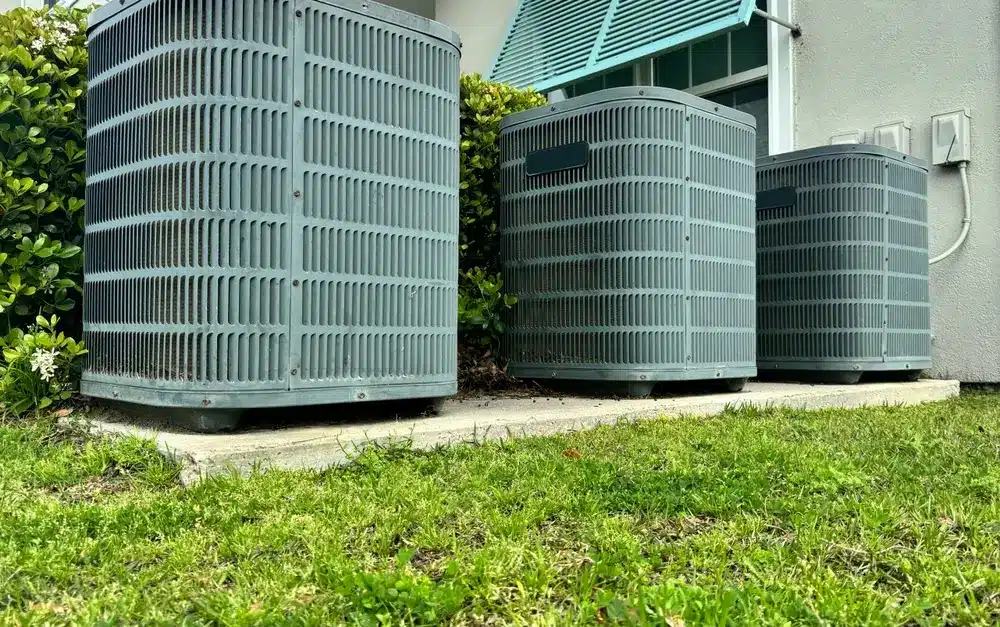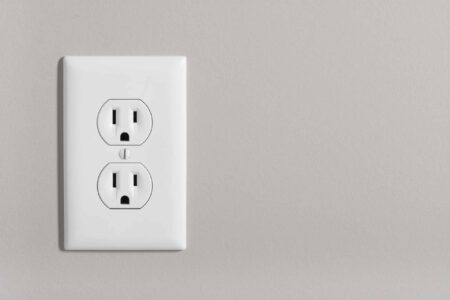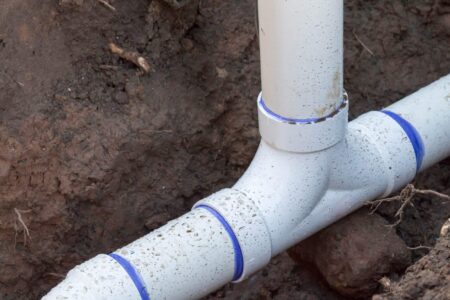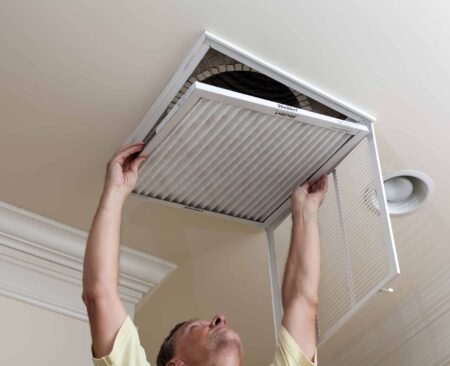A common homeowner mistake is taking a break-fix approach to a water heater. That approach can actually end up costing you a lot more in the end. Routine maintenance performed by a professional can lower your month-to-month expenses and extend the life of your equipment. Here are 11 water heater maintenance tips to do just that.
1. Perform a Visual Inspection Every Month
Each month, take some time to look over your water heater from top to bottom. Remove any clutter from around the unit. Paper items can lead to a fire with not just gas but electric systems. You should also look for any signs of a leak. Even small amounts of moisture can be a big cause for concern. Look at the tank itself for any signs of damage, rust, or other corrosion. Check the thermostat to ensure that its cover is in place.
2. Schedule Professional Maintenance Annually
It’s also recommended that you hire a professional once a year to inspect and clean the system. Fall is the perfect time to schedule a tune-up. Your plumber will perform much of the maintenance that we’ll discuss in the upcoming tips for you. This is important for component life. There are many water heater components that need regular maintenance and that can fail over time without it including the:
- Anode rod
- Drain valve
- Thermostat
- Hot water outlet
- Burner or heating element
- T&P valve and discharge pipe
3. Adjust the Temperature
New water heaters often default to 140 degrees Fahrenheit. The U.S. Department of Energy recommends lowering it to 120 degrees. The average home doesn’t need the water at 140 degrees. The lower setting will protect against scalds and lower your monthly water heating costs. In the case of an electrical system, it will also reduce wear and tear on the electrical components. During your annual maintenance, your plumber will also check the thermostat to ensure accuracy. It’s common to have to replace a thermostat once or more during a water heater’s life.
4. Insulate the Water Heater
Most water heaters on the market do not include insulation. It’s an inexpensive upgrade that can save you a great deal of money over the years. The pros recommend installing it when you get a new water heater, checking it regularly, and replacing as needed.
What insulation you need depends on the unit type. Both tankless and tank and electric and gas water heaters should have insulation on both the cold and hot lines. The foam insulation protects against condensation in summer and heat loss in winter. If you have an electric tank water heater, consider a water heater jacket as well. These units can lose energy directly through the tank during winter. An insulated base is also an option for electric tank units.
Take care if you do opt for a water heater jacket or blanket. You can no longer set the unit above 130 degrees Fahrenheit. Doing so can cause wiring and electrical components to overheat.
5. Check the Anode Rod
Tank water heaters have a sacrificial anode rod. Manufacturers make these rods from a metal alloy with more negative electrochemical potential than the tank. Even in soft water, there are minerals that will eventually accumulate and compromise the tank. The sacrificial anode rod attracts those minerals instead thereby protecting the tank. As the name suggests, they don’t last forever. Anode rods last between three and five years depending on the quality of your water. Your plumber will check your anode rod annually and replace it when necessary.
6. Flush the Water Heater
Even with an anode rod, your water heater will accumulate sediment and calcium buildup. It’s recommended that you flush the tank once a year at least. Depending on the water hardness and other water qualities in your area, you may need to do it twice a year. Tankless water heaters need flushing too. All water heaters have a drain valve. Your plumber will turn the system off, attach a hose to the drain valve, and empty all the water. Your plumber will then refill the tank and turn it back on.
7. Descale the System
If you have a tankless system, your plumber will descale it during the flushing process. With tankless, there’s no set amount of water to flush. Descaling requirements are what dictate how long you flush the system. You may need a chemical descaling agent if the accumulation is bad. If you schedule annual maintenance, food-grade white vinegar will do the trick. Your plumber will also use a 5-gallon bucket, two 3/4-inch connection hoses, and a submersible pump.
8. Maintain the Water Softening System
If you have hard water, a whole-house water softening system is a good idea. It may be a requirement for a tankless water heater and is highly recommended for tank systems. This home upgrade will greatly extend the life of your water heater and lower your long-term costs. Water softeners need maintenance too. Maintenance requirements will vary depending on your configuration. Generally, your plumber will check salt levels, clean the brine tank, and replace the water softener resin.
9. Test the T&P Valve
Modern water heaters are very safe. Tank explosions, for instance, are all but unheard of nowadays. One reason for this is the temperature and pressure relief valve. If the temperature or pressure gets too high, this valve opens and allows water to drain into a drain pipe. Your plumber will perform a comprehensive inspection of the T&P valve every year. You should replace it when there are any signs of wear. You can also check it yourself during your monthly inspection. Simply lift it up and down several times. You should hear gurgling, and a small amount of water should flow out.
10. Replace the Air Intake Filter
All water heaters require venting. The air intake filter keeps particulates out of the system and will clog over time. Depending on your environment, you need to replace this filter every six to 12 months.
11. Clean the Burner and Pilot Light
Gas water heaters have a burner and a pilot light. When you check the system each month, check that the pilot light is blue. If it’s any other color, turn the system off and call your plumber. During your annual maintenance, your plumber will clean both the burner and pilot light. Doing so is very important from an energy efficiency perspective but also because it makes your unit safer. Dirty burners give off more dangerous gases and are more prone to fires.
Local Water Heaters Services in Wichita and Beyond
If you need professional
water heater maintenance, Eck Services is here to help. We have offices in Anthony, Hutchinson, Kingman, Medicine Lodge, Pratt, and Wichita. Our plumbers also install tank and
tankless water heaters, clean drains, repair pipes and sewers, replace fixtures, and install sump pumps. We have electricians who upgrade electrical panels and install indoor and outdoor lighting, generators, EV charging stations, and surge protection. Our HVAC technicians install and repair all types of ducted and ductless heating and cooling systems. We install air purifiers and UV lamps as well. Call today to learn more about these services or to schedule a consultation or service appointment.


